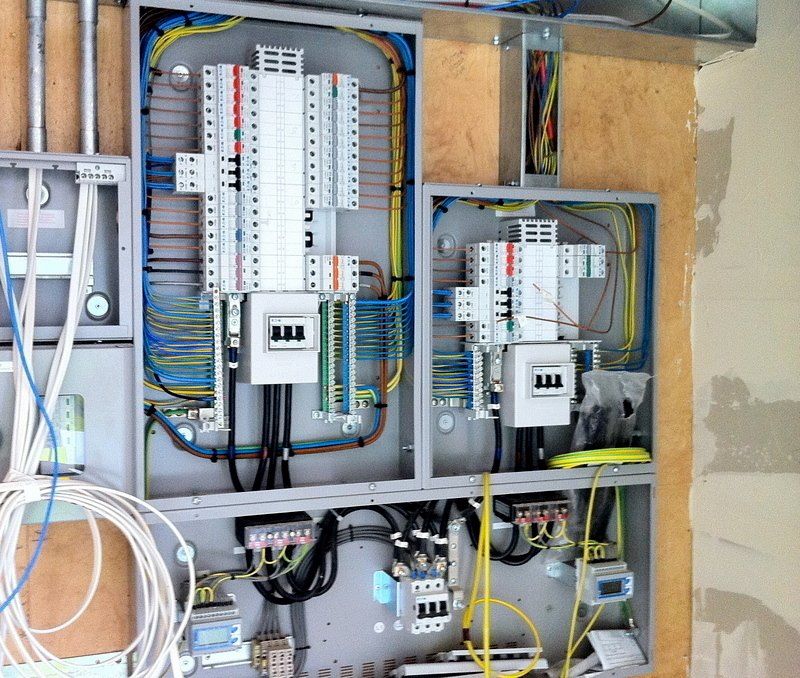Trusted and Professional BRE Electrical Services for Every Job
Trusted and Professional BRE Electrical Services for Every Job
Blog Article
Debunking Electrical Setup: Comprehending Codes and Laws for a Legal and Safe Configuration
In the world of electrical installation, adherence to codes and laws is extremely important to make certain both validity and security. The journey to demystifying electric installment goes beyond plain experience with policies; it necessitates an extensive understanding of how to execute risk-free electric practices successfully.
Significance of Electric Codes
The adherence to electrical codes is crucial in making certain the safety and integrity of electrical installments. Electrical codes serve as a collection of standards and standards that determine the proper design, setup, and upkeep of electrical systems. These codes are established to decrease the risk of electrical threats, fires, and other security worries that may occur from damaged electrical job.

Furthermore, electric codes are on a regular basis updated to include brand-new technologies, best techniques, and precaution. Staying upgraded with these codes is essential for professionals in the electric sector to make sure that their work satisfies the most recent safety and security requirements. Inevitably, the value of electric codes hinges on developing a protected and reliable electrical framework that benefits both individuals and areas.
Key Rules for Safety
A number of basic policies control the safety requirements in electric installations. One crucial regulation is the National Electrical Code (NEC), which offers guidelines for risk-free electrical layout, installation, and assessment to shield people and residential or commercial property from electric threats. The NEC covers elements such as wiring techniques, grounding, overcurrent defense, and equipment setup to ensure a safe electrical system.
An additional crucial policy is the Occupational Security and Wellness Management (OSHA) standards, which focus on the security of workers associated with electrical installments (BRE Electrical). OSHA guidelines consist of needs for proper training, safety procedures, and personal safety devices to stop office crashes and injuries
Furthermore, the International Electrotechnical Commission (IEC) criteria this article intend to balance electrical installation laws on a global scale. These standards address issues like electric devices safety, electro-magnetic compatibility, and power effectiveness to promote harmony and security in electrical installments worldwide.
Conformity with these key regulations is necessary to make certain the security and legality of electric installations, shielding both people and home from the risks connected with electrical energy.
Understanding National Electric Code
Key regulations such as the National Electric Code (NEC) offer crucial guidelines for secure electrical layout, setup, and inspection to make sure the protection of people and residential or commercial property from electric threats. The NEC, additionally Read Full Article called NFPA 70, is a detailed set of requirements for electric setups that are upgraded every three years. It is established by the National Fire Defense Association (NFPA) and is commonly taken on across the United States.
The NEC covers different facets of electrical job, consisting of wiring techniques, grounding, overcurrent defense, and equipment setup. It intends to safeguard people and building by attending to prospective dangers linked with electrical systems. Compliance with the NEC is normally applied by local authorities having jurisdiction (AHJs), such as developing code authorities and assessors.
Understanding the NEC is important for electric professionals, developers, and inspectors to guarantee that setups satisfy the needed safety and security needs. By sticking to the NEC standards, professionals can help prevent electrical accidents and make certain the integrity of electric systems in property, business, and commercial setups.

Compliance With Neighborhood Building Regulations
Recognizing and sticking to local building codes is crucial for guaranteeing the safety and security and conformity of electrical installations within a certain territory. These codes outline particular demands for electric installments, such as the type of wiring to be utilized, positioning of electrical outlets, basing approaches, and load capacities.
When it pertains to electric installments, failure to follow regional building ordinance can cause significant consequences. Non-compliant installations may home position security threats, raise the risk of electric fires, and lead to costly fines or legal issues. Additionally, insurer might reject to cover problems arising from setups that do not satisfy regional building ordinance needs. Therefore, it is crucial for electrical experts and service providers to remain notified around and strictly stick to the local building regulations appropriate to their projects.
Making Certain Safe Electrical Practices
Practicing strict adherence to developed safety and security methods is critical in the area of electric installments to reduce potential risks and ensure the well-being of individuals and properties. Safety and security in electric job includes numerous elements, starting with the correct training of employees included in setup, maintenance, and fixing. By focusing on safe practices, electric setups can function successfully while lessening the possibility of accidents or damages.
Conclusion
To conclude, adherence to electric codes and policies is crucial for ensuring the security and legality of electric installations. Recognizing the National Electric Code and conformity with local building regulations are important for a secure configuration. By following these standards and practicing risk-free electrical methods, individuals can stop potential dangers and guarantee the correct functioning of their electric systems.
Report this page